Menu
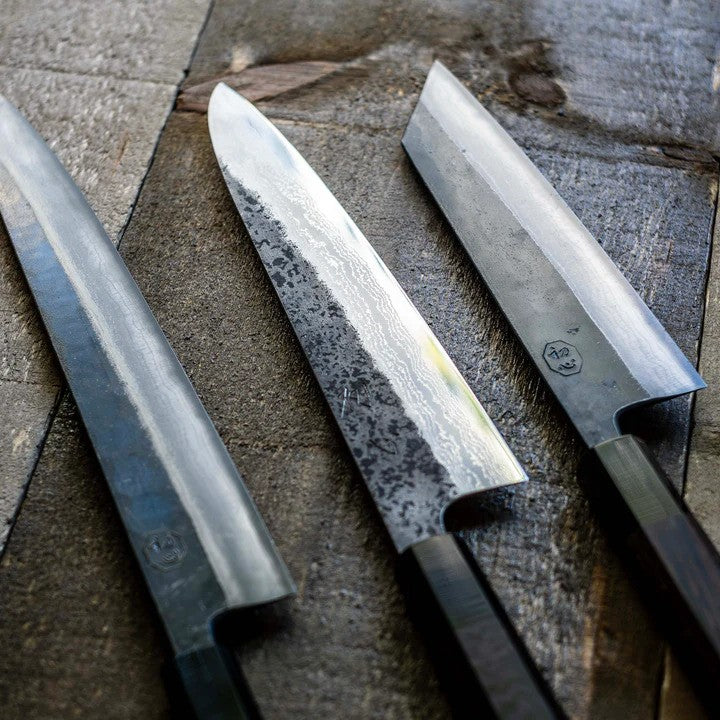
THE BLACKSMITH
HATSUKOKORO
- Choosing a selection results in a full page refresh.








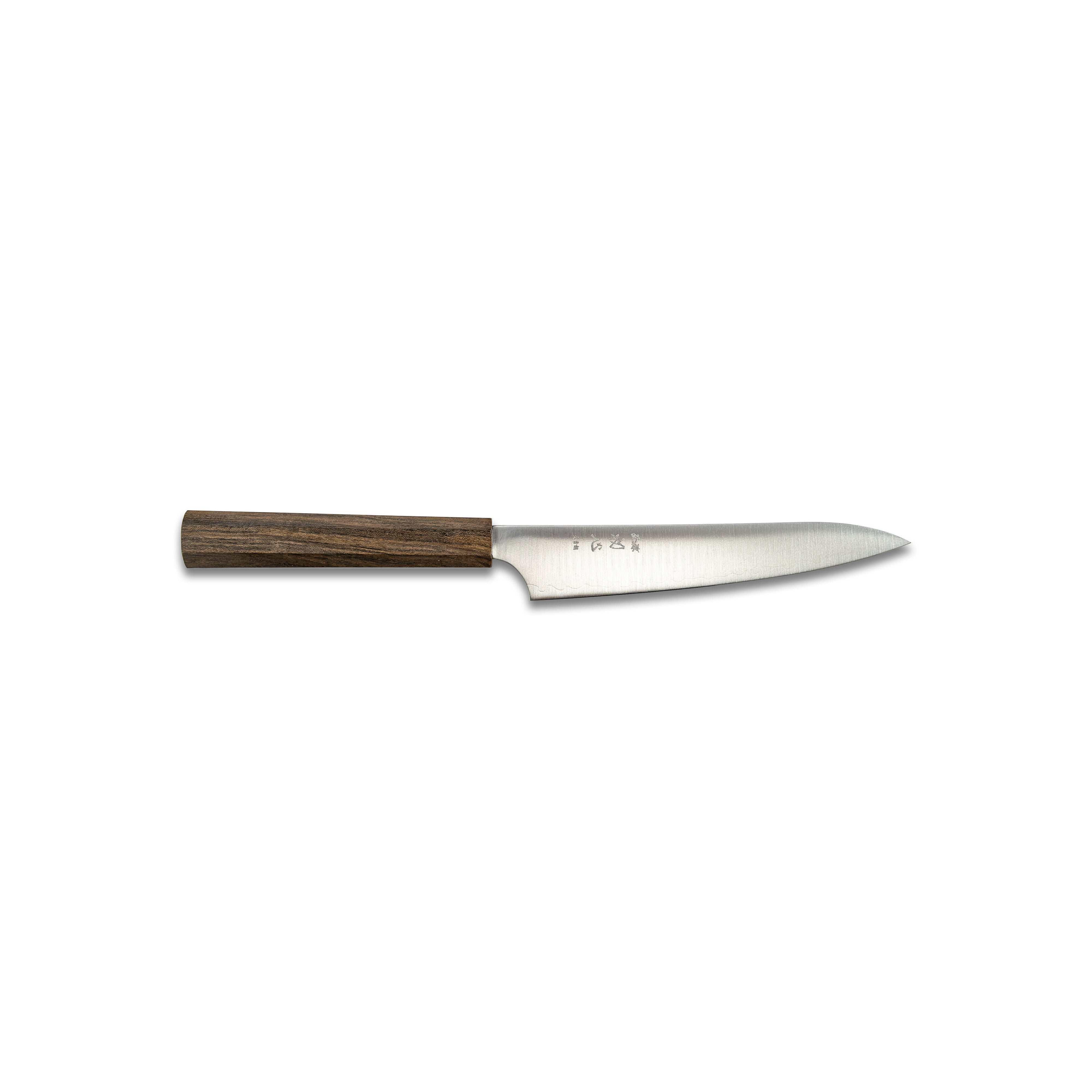
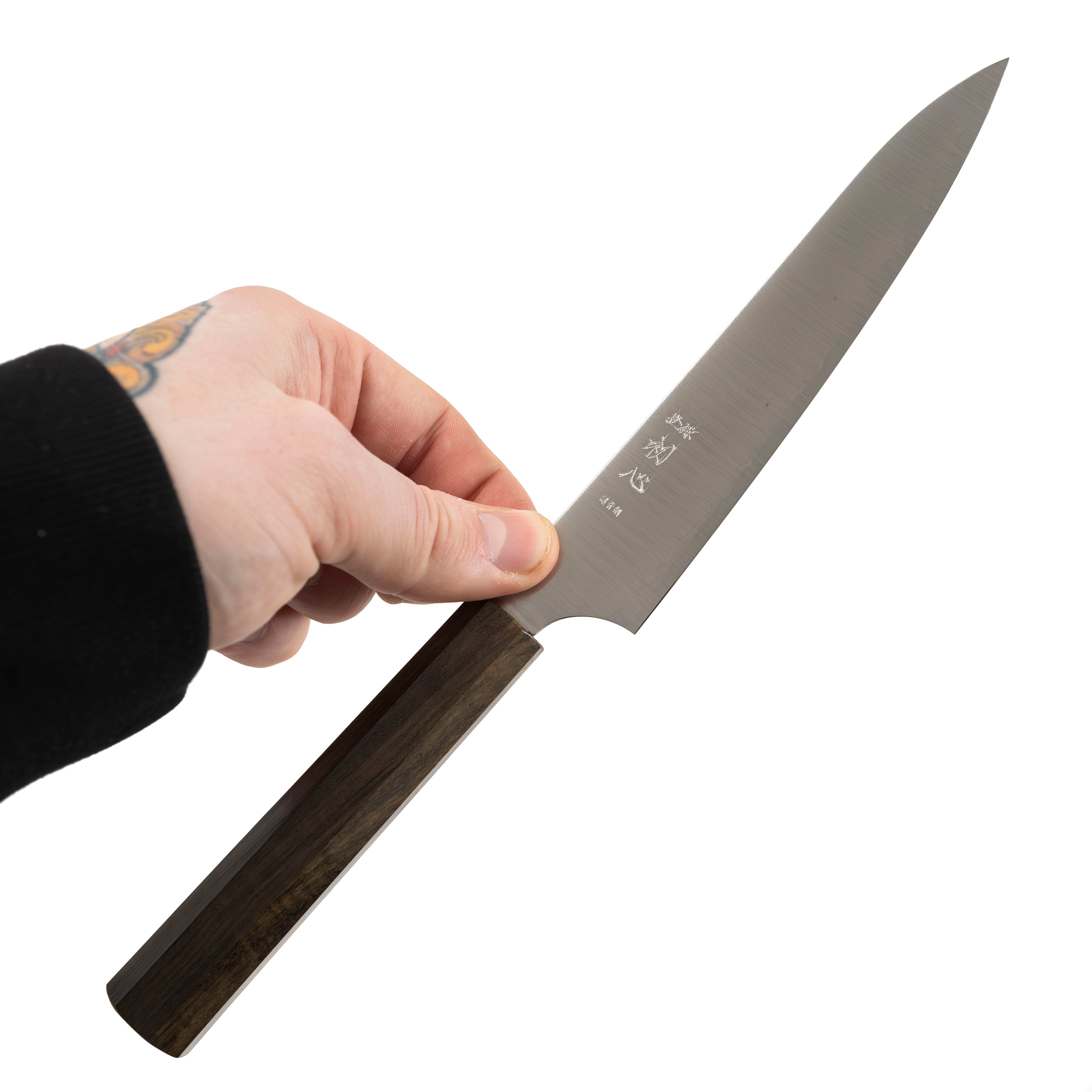






Usually ready in 1 hour
| Blade Length | 150 mm |
| Total Length | 279 mm |
| Steel | Aogami Super |
| Handle | Bubinga |
| Ferrule | n/a |
| Rockwell | 62-63 |
| Height Spine to heel | 29 mm |
| Width at Spine | 1.7 mm |
| Weight | 64 g |
| Bevel | Double (50/50) |
Follow these care recommendations for your Japanese knives to protect the edge and keep them sharp as long as possible:
All products are shipped within 24 hours. We offer same day shipping for products ordered by 12pm. Please allow 4-7 business days for your shipment to arrive with standard shipping. Expedited shipping options are also available at checkout.
We offer free shipping on orders within Canada over $150 CAD and free shipping on orders to the US over $200 USD.
Curbside pick-up is available at both our Hamilton and Etobicoke locations.
To make sure our customers are always satisfied, we offer full refunds on products for 14 days after receiving them. See our full return policy for details.
More questions? Check out our shipping policy, our return policy, or reach out to us directly.
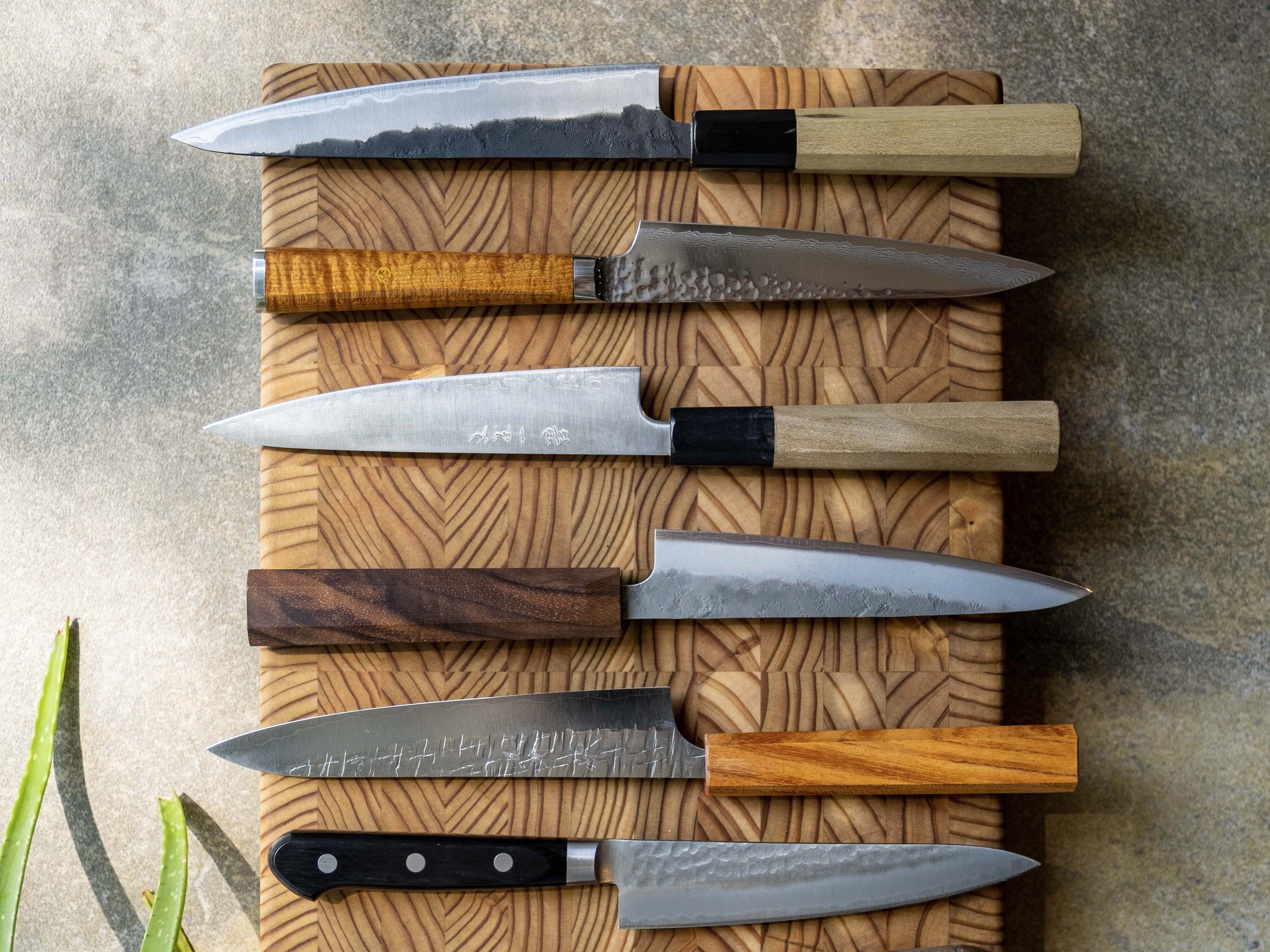
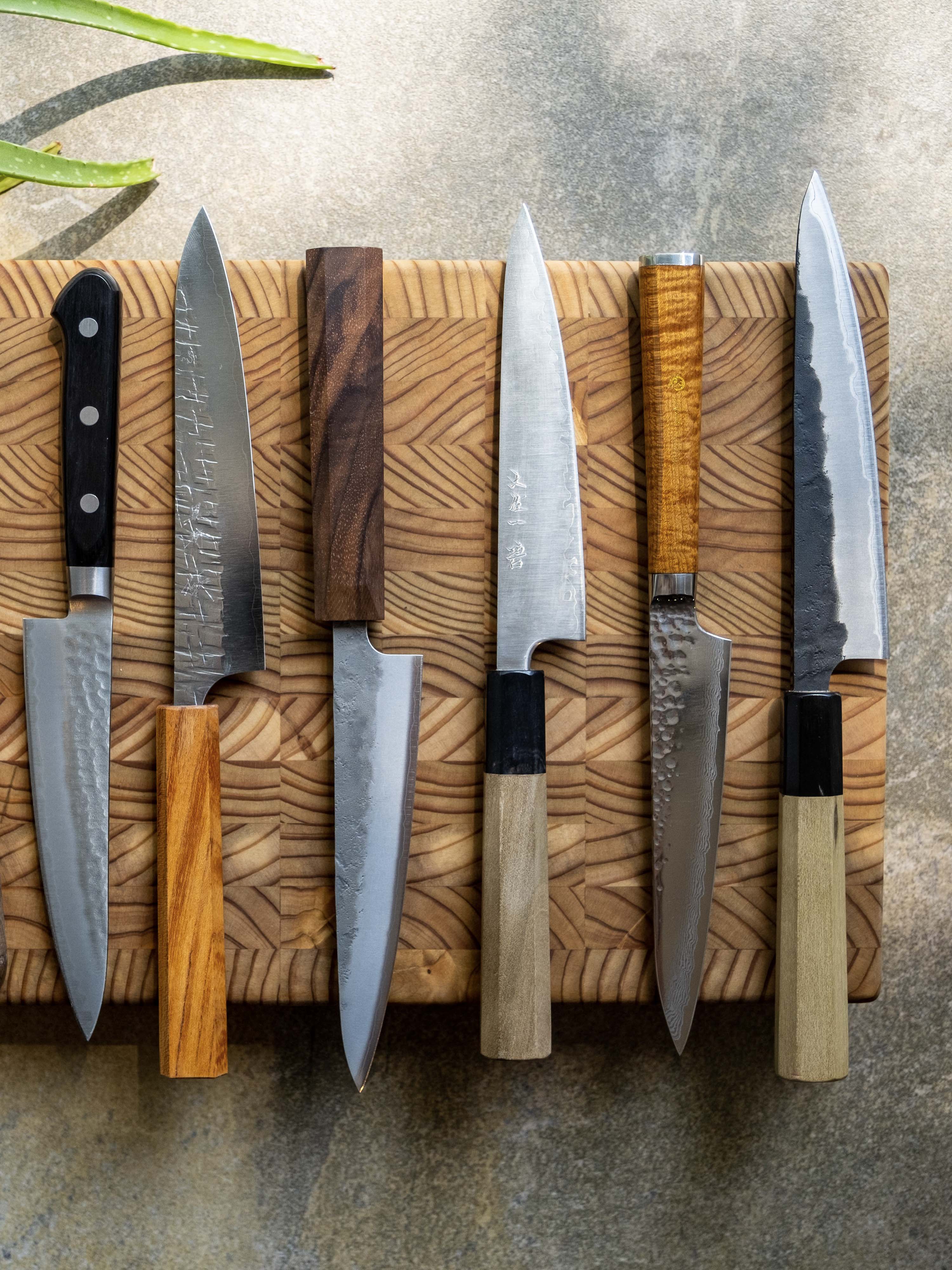
The petty knife is the Japanese equivalent of a utility knife. They typically range in size from 90 mm (3.5 inches) to 150 mm (6 inches) and have a slender, easy-to-control, short blade. They are a perfect accompaniment to a Gyuto, Santoku, or Bunka, as they facilitate smaller tasks. Shorter versions are great for in-hand use. Longer versions are great for fine chopping and managing small ingredients on a cutting board. They also handle butchery tasks with ease.
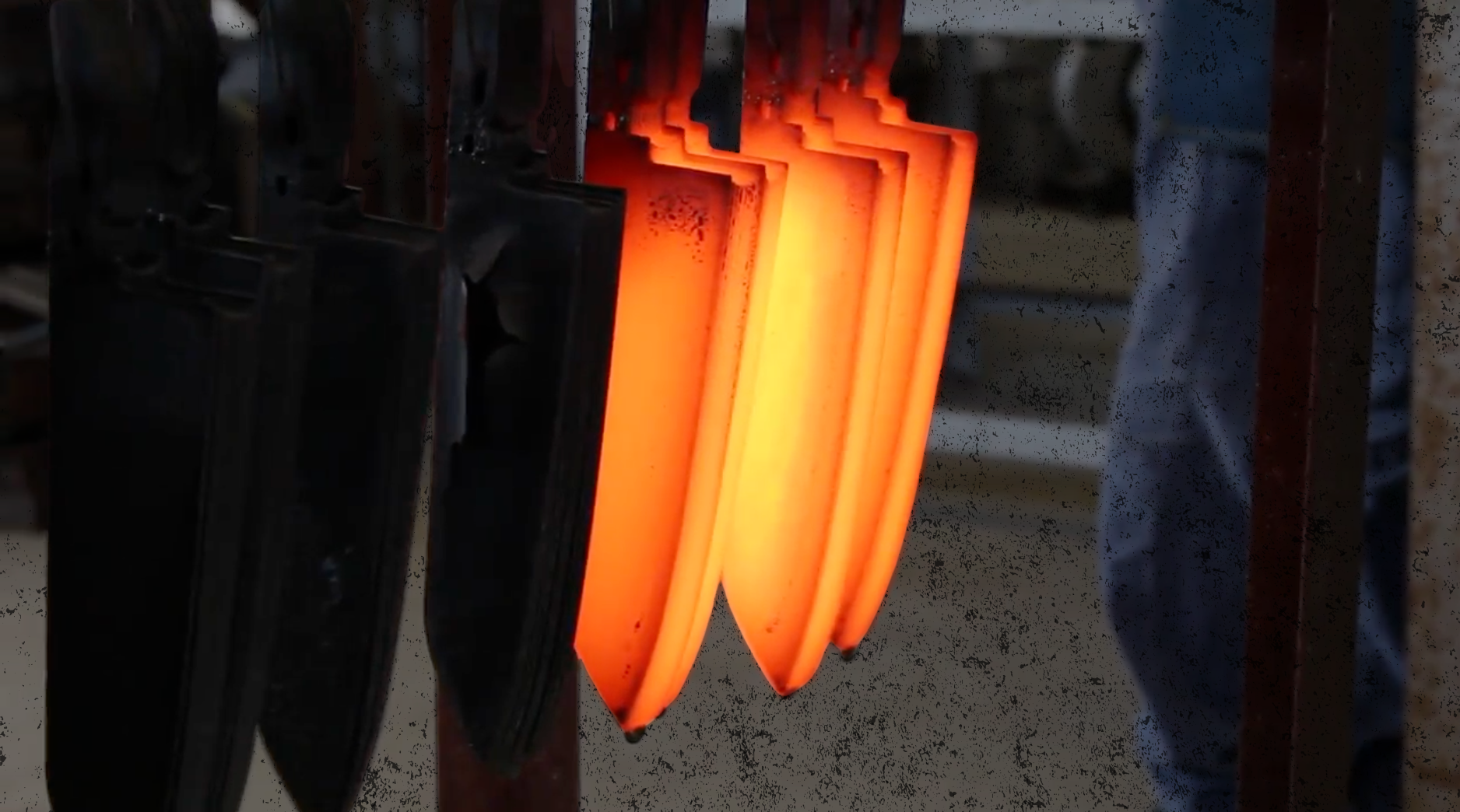
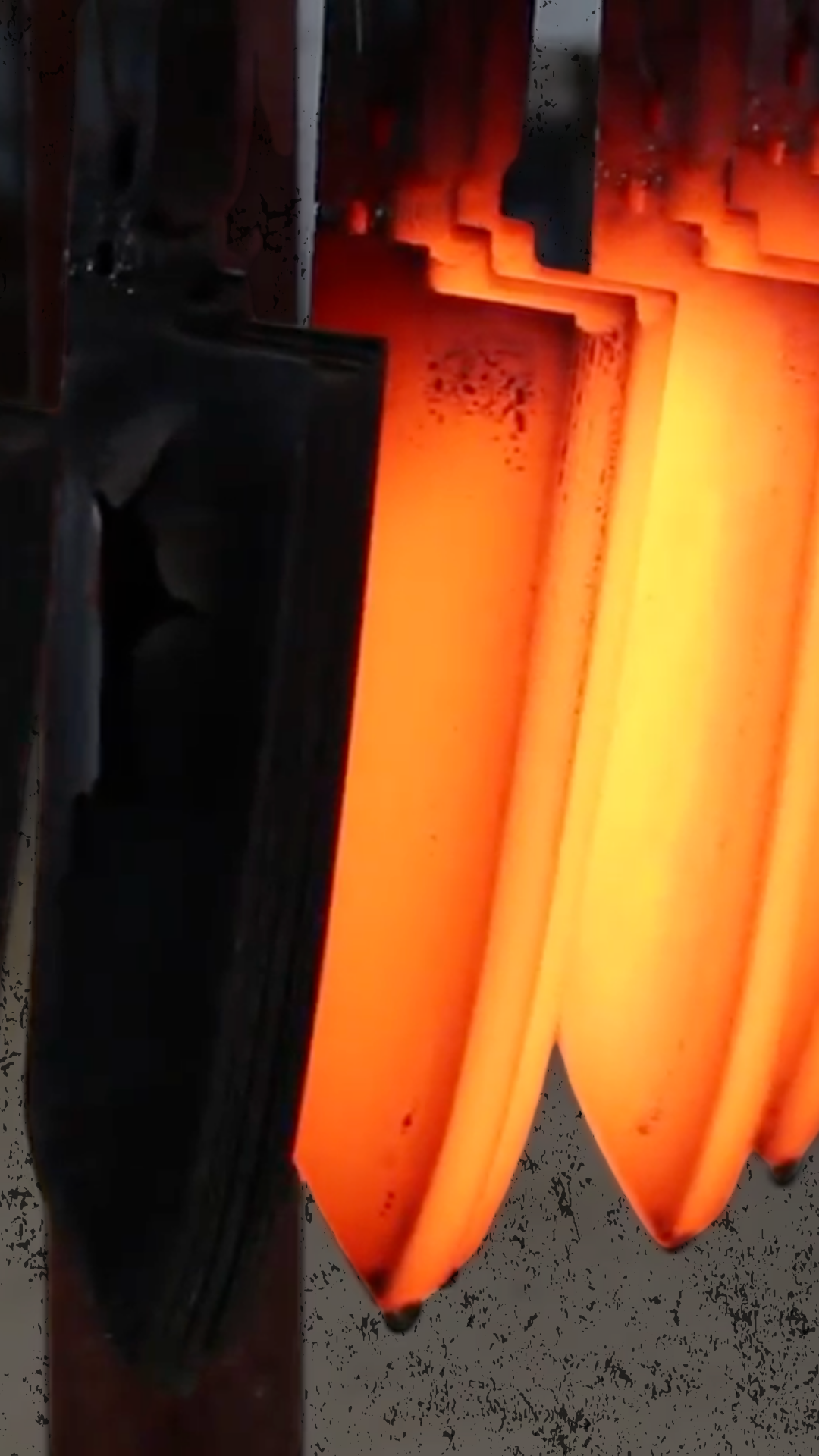
AKA Blue Super: This steel is considered by many to be the best carbon steel available for knife making. Containing elevated levels of carbon, chromium and tungsten and with the addition of molybdenum it is easy to sharpen, gets super sharp, is less reactive to rust, and is less brittle (compared to other carbon steels).
Chemical Composition:
C 1.4-1.5% | Cr 0.3-0.5% | W 2.0-2.5% | Mo 0.3-0.5% | V 0.5%
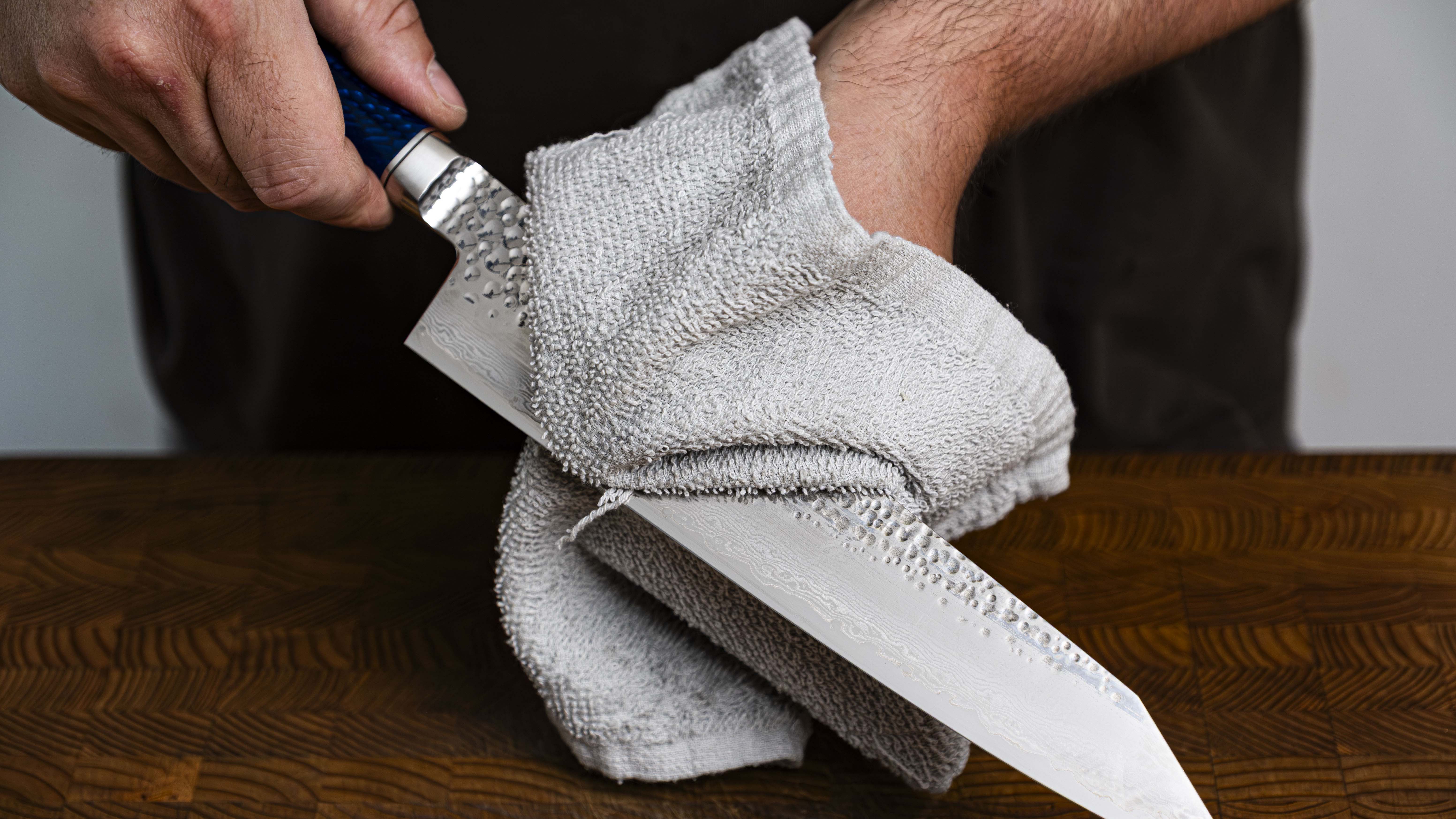
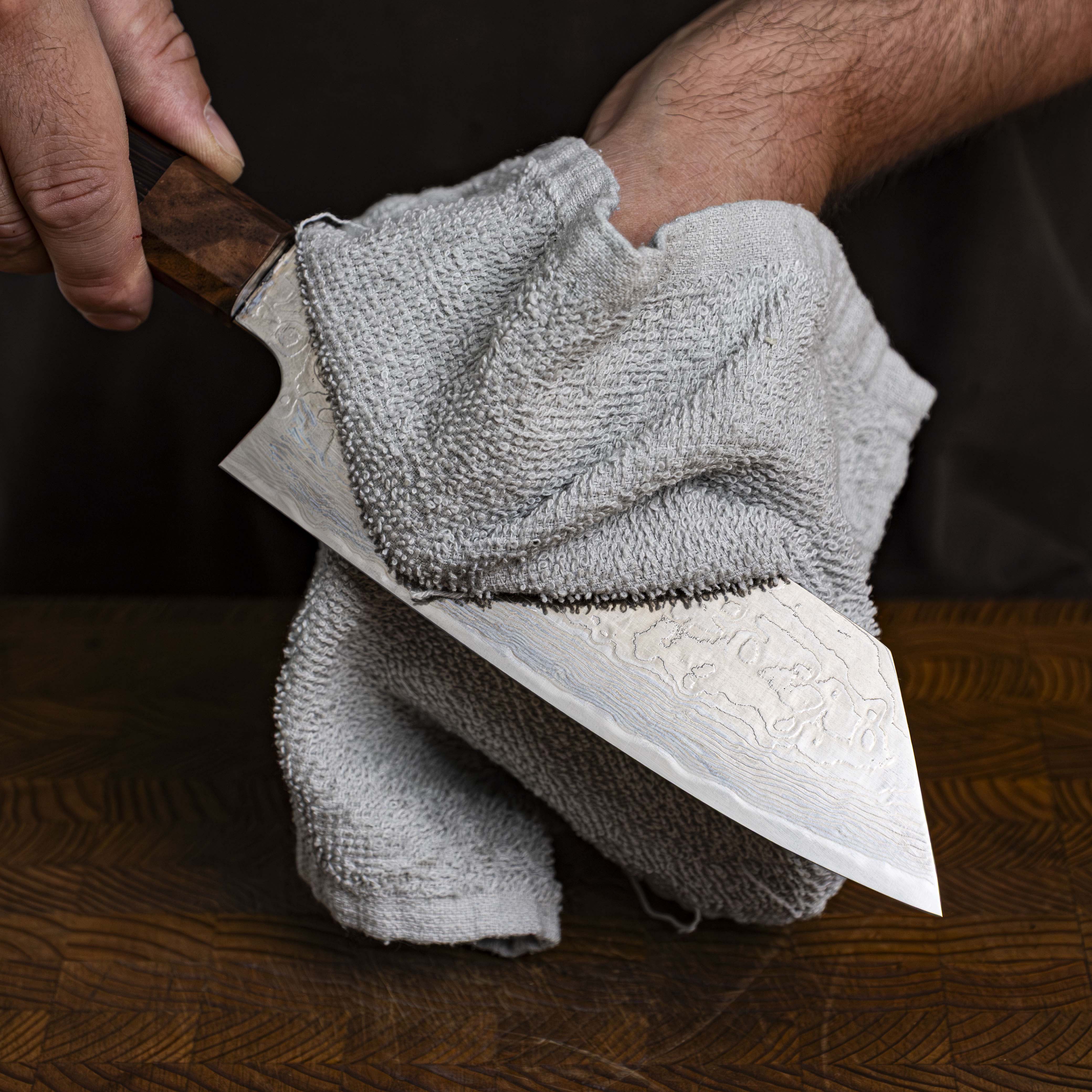
MODERATE MAINTENANCE
Stainless clad knives have two softer outer layers of stainless steel around a harder core layer of carbon steel. The clad line (wavy line near the cutting edge of the knife) is where the layers of stainless steel end. Past this point, the exposed carbon steel is susceptible to rust or discoloration. This edge will develop a patina (a darkening of the steel; blue, dark grey, sometimes black colouration of the blade) no matter how well they are cared for. Stainless clad knives are great for those who want the easy sharpening of a carbon steel coupled with the rust resistant properties of stainless steel.

Hatsukokoro are masters of smithing, sharpening, and handle making. They ensure quality and a high attention to detail on their knives, so you know that you will be getting an amazing work knife. Based out of the industrial city of Amagasaki, Hyogo Prefecture, Japan, Hatsukokoro offers a wide breadth of handcrafted blades, sourcing from a variety of knife making regions across Japan. Their offerings are diverse in price point and profile, making them a great option for both industry professionals and home cooks.
